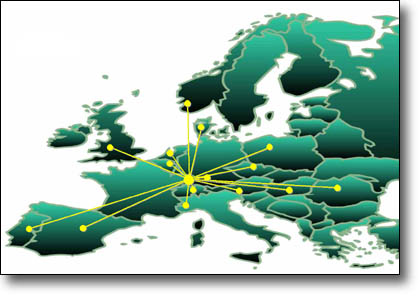The Great Migration
 The problem of aging population in highly developed industrial counties has been a topic of numerous discussions in the course of several years.
The problem of aging population in highly developed industrial counties has been a topic of numerous discussions in the course of several years.
The issue is especially relevant for Europe. One can also mention Japan, but that is a separate subject altogether. Authorities of this country have never really welcomed immigrants. Europeans on the contrary, rarely paid any attention at this matter.
In the meantime, according to the European Demographic Commission, European population continues to age and decrease in size. Whereas 50 years ago Europeans made up 22% of a total amount of people inhabiting our planet, today this figure equals to 12%. (A total number of people living in Europe—814 million people). In the beginning of 2003 European population growth constituted only 0,08% (in comparison to the first months of 2002). In 1990 deficit of births has been reported only in Germany, Bulgaria and Hungary. In 2002, such problem has affected 12 more Central European countries.
It is worth mentioning that there exists no solution to the problem so far. UN has been trying to persuade Europe to accept more immigrants from developing countries in order to resolve the problem of demographic crisis. The issue has been brought up by United Nations Secretary General Kofi A. Anan in his Thursday's address to the Euro parliament in Brussels.
However, this particular solution does not seem to appeal to politicians or ordinary European residents. Toughening of immigration requirements has become a norm. Obviously, this mainly concerns illegal immigrants from Asia and Africa.
However, despite the fact that an overwhelming majority of Europeans are against such immigration flow, EU has no other choice but to follow the UN's advice. Otherwise, European demographic crisis may result in such serious social and economic problems that immigration will no longer be an issue. Nowadays, people are already talking about what will happen when one working European will have to support two pensioners. Obviously, it will be rather difficult to expect any sort of economic growth then.
True, Europeans are faced with a tough choice. What is more important, to maintain high social and economic growth rate or to adhere to national interests? The first scenario suggests accepting more immigrants; the second entails toughening of legislation.
In the meantime, it is certain that an overwhelming majority of Europeans are neither willing to sacrifice their high living standards nor sharing anything with immigrants.
Subscribe to Pravda.Ru Telegram channel, Facebook, RSS!





